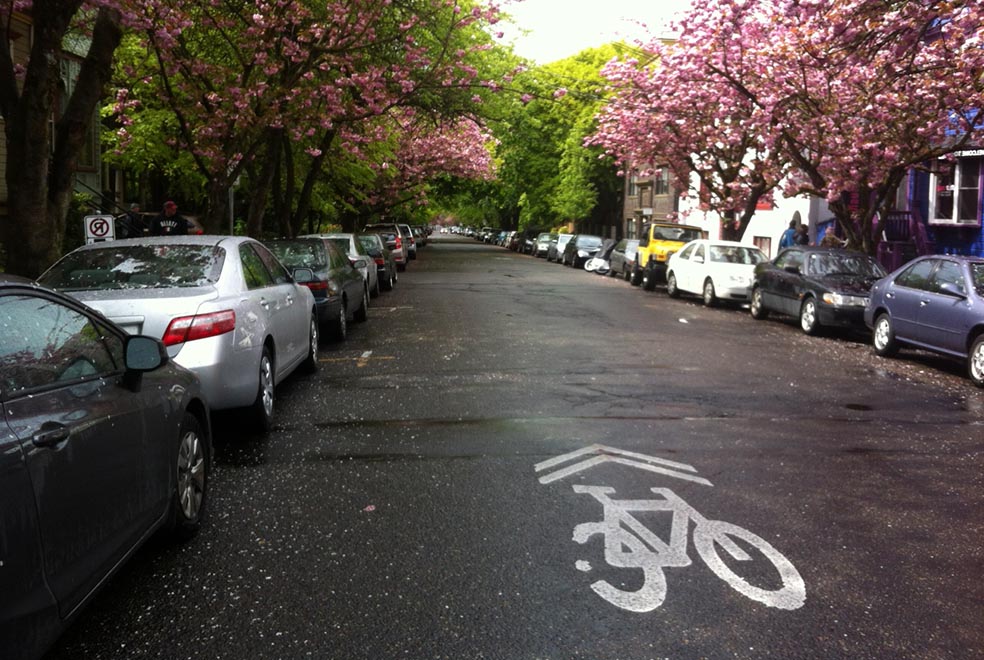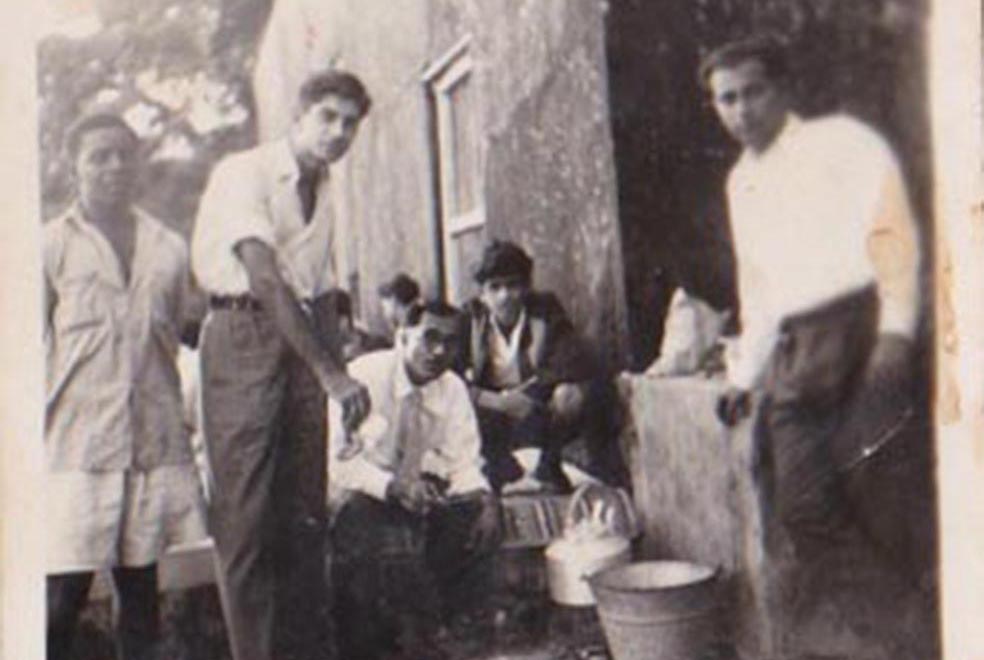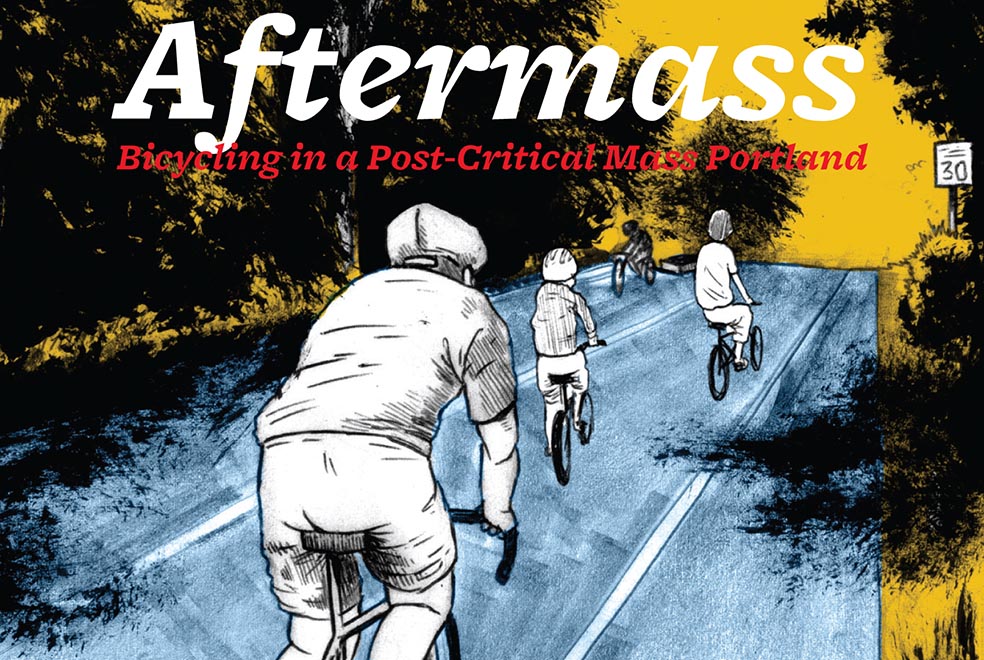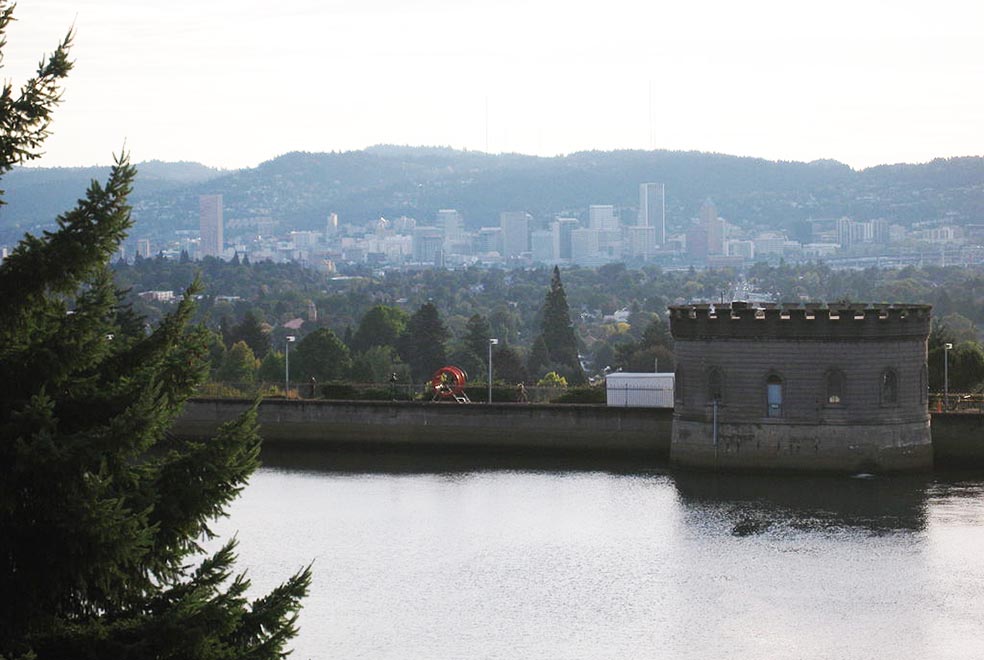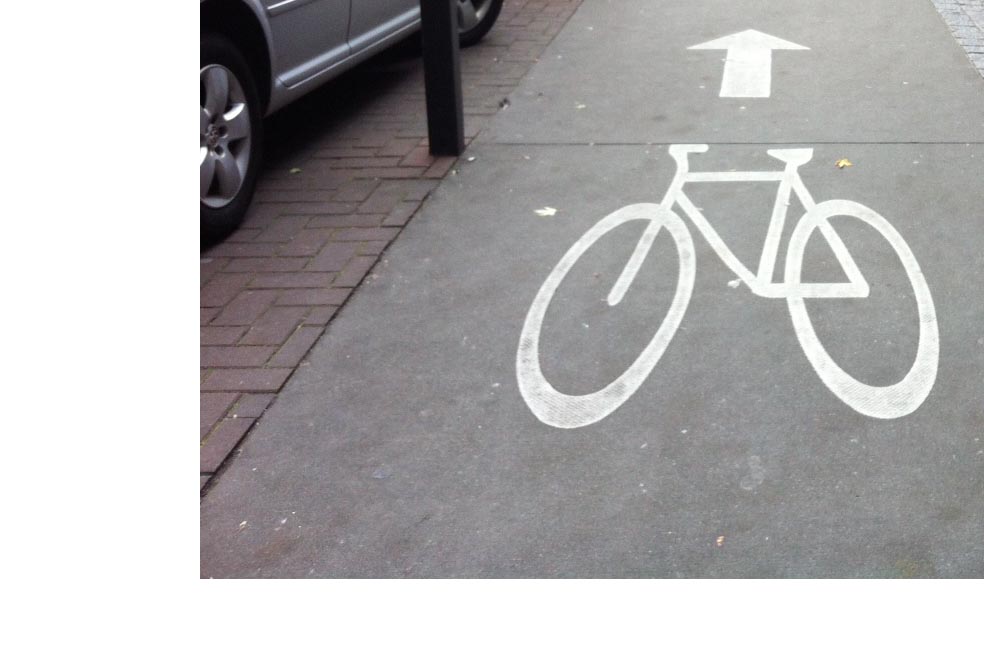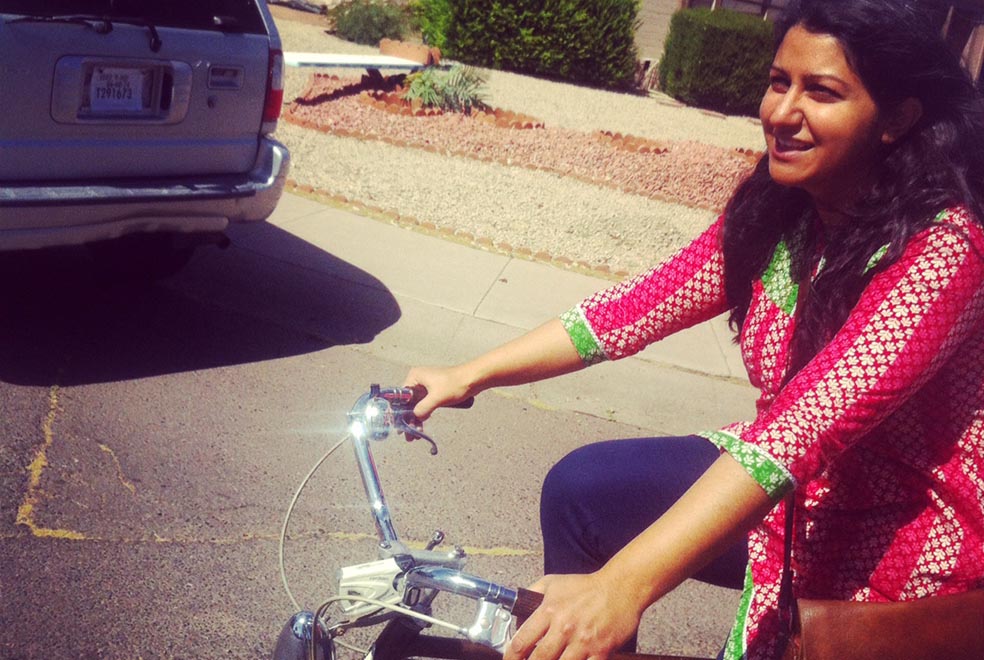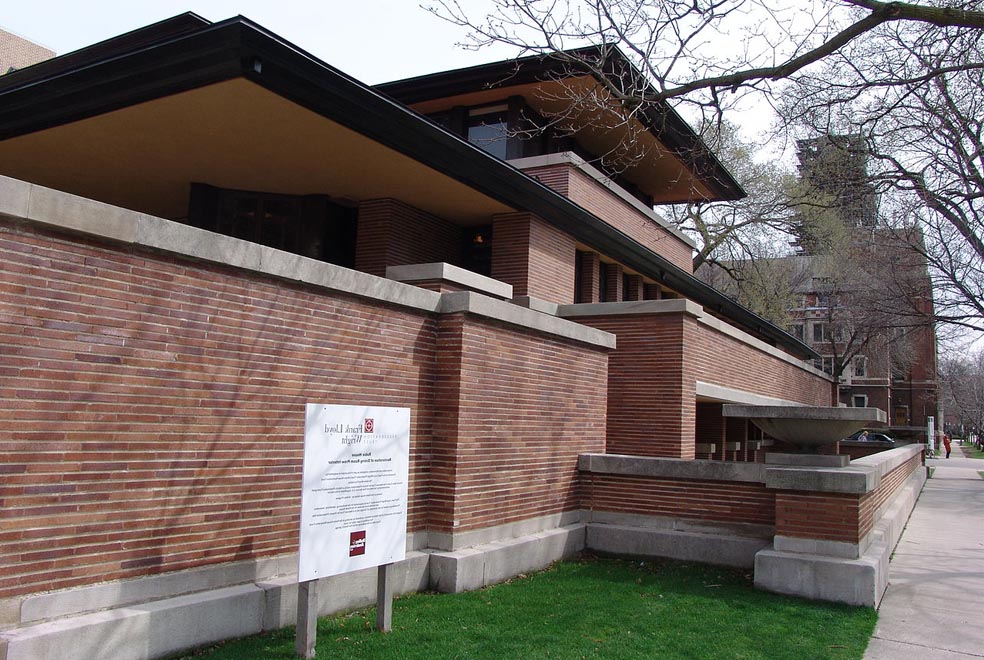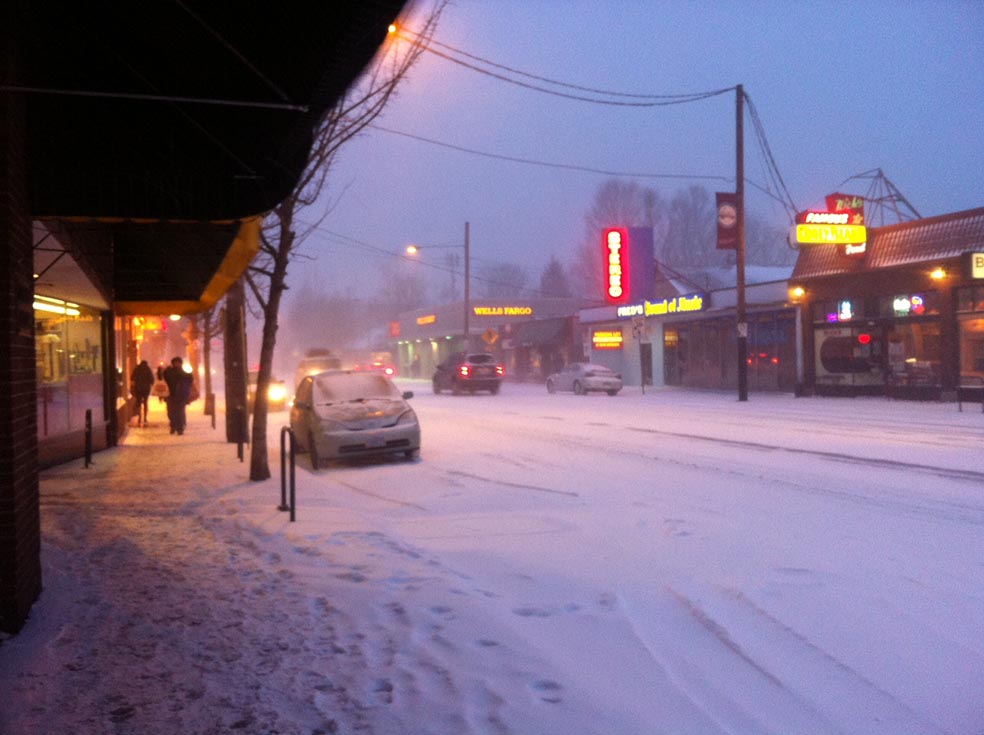Tweet Neighborhood Greenways have been touted as the best way to make biking safe and appealing on American streets. They are low-cost, at only $250,000 per mile as opposed to $4 to $5 million per mile for cycle tracks, they don’t require heavy modification of existing streets, and they are easy to engineer. The concept of Neighborhood Greenways was developed by Portland Bureau of Transportation’s Greg Raisman and Mark Lear as a feasible way to make bicycling easy and safe for anyone who wants to bike. Having been first implemented in 2009 in Portland, they were widely installed in 2010…
Tweet My mother, who grew up in a small village called Koday in the northwest province of Gujrat in India, doesn’t waste a thing, even though she now lives in a nice 2500 square foot house in suburban Chandler, Arizona. She once told me that to save water in 1940s rural India, they used ashes to clean their cooking pots. Now that’s sustainability! Today, she saves all the plastic bags that come as roti packaging for later use, she washes plastic cups and forks and reuses them and without fail, she insists on packing a lunch for every significant outing…
Tweet I moved to Portland from Phoenix essentially for its reputation for bicycling and transit, knowing that I could lead a car free life relatively easily here. But this weekend, I found out that Portland has not always been “America’s Bicycle Capital”. I went to the premier of Aftermass, a movie directed by Microcosm publisher and moviemaker Joe Biel that documents the tenuous beginnings of the bicycling culture in Portland. It reveals, through a series of interviews and historic footage of key events what an uphill battle it’s been to normalize bicycling in this city, starting with Critical Mass bike…
Tweet This morning, the city of Portland issued a boil water notice for 670,000 customers of the Portland Water Bureau after finding traces of E. Coli in two of Mt. Tabor’s open-air reservoirs. This is significant in light of the city’s controversial move towards covering the reservoirs. Would this E. Coli incident have happened if the city had discontinued its open-air reservoirs over 6 years ago when the federal mandate to do so was issued? Portland is currently in the process of shutting down the use of the open-air reservoirs on Mt. Tabor and is constructing new covered reservoirs at…
Tweet When the city of Portland was getting community feedback on its 20s Bikeway Project, it ran into a lot of opposition from businesses along NE 28th Avenue, north of Burnside for adding bike lanes along that stretch. Their beef was with the fact that the added bike lanes would eliminate on-street parking in front of their stores, thereby putting off potential customers. Unfortunately, the mistaken business owners got their way and the new proposed route for the bikeway is two streets over on NE 30th. Be careful what you ask for I say, those very bike lanes they railed…
Tweet The Wikipedia definition of subversion is: “an attempt to transform the established social order and its structures of power, authority, and hierarchy. Subversion (Latin subvertere: overthrow) refers to a process by which the values and principles of a system in place, are contradicted or reversed.” In some parts of the world, just going to school is a subversive act. In others, two males holding hands is subversive. When you think about it, even something as innocuous as buying your produce at a farmer’s market is an act of subversion. These acts may seem small and insignificant, but they are…
Tweet “Frank Lloyd Wright went to great lengths to make sure his houses never faced north,” said Robert McCarter, a Ruth and Norman Moore Professor of Architecture at Washington University in St. Louis, on Friday at his lecture for the Gordon House Conservancy called The Evolution of the American House. McCarter also said that Wright liked to use drapes in homes not only to cut the draft but to create visual privacy while at the same time maintaining auditory connectedness. The architect was particularly sensitive to how occupants of his buildings experienced sound. The Gordon House This weekend’s lecture was…
Tweet Here in the West, we have countless meetings, a rigorous permitting process, permission-seeking requirements, and all sorts of hoops to jump through before we actually make a move in the public realm. Recently, I visited three extremely vibrant cities in India where people practiced organic urbanism. They set up their vendor stalls in available nooks and crannies, they appropriated public space in ways that suited them and in general made the public realm a reflection of the everyday needs of the people. In other words, the city was a teeming, living organism, constantly changing and morphing with things that…
Tweet This is an excerpt from an article I wrote today for Firefly Living: “While you all are dining out at fancy restaurants, some of us are struggling to find a cheap meal,” says Dannette Lambert, a community organizer and resident in Oakland, California. This pretty much sums up the problem of gentrification, which is when wealthy newcomers completely transform a lower-income urban neighborhood into a yuppie or hipster haven, pricing out and pushing out original residents, who made the place interesting in the first place. Gentrification is the major issue facing urban core revitalization today. As urban living becomes…
Tweet Weather is something that transcends all categories of people, that’s why talking about the weather is so popular – because we ALL experience it! The weather doesn’t discriminate, that’s for sure! In Portland, we’ve had what I call a freak snow storm that has left 6 inches of snow on the ground and is expected to bring another 5 inches today. I was so bowled over by this weather event I sat entranced in my apartment for four hours staring out the window at the snow falling and being blown around by the wind. One of the amazing side…















